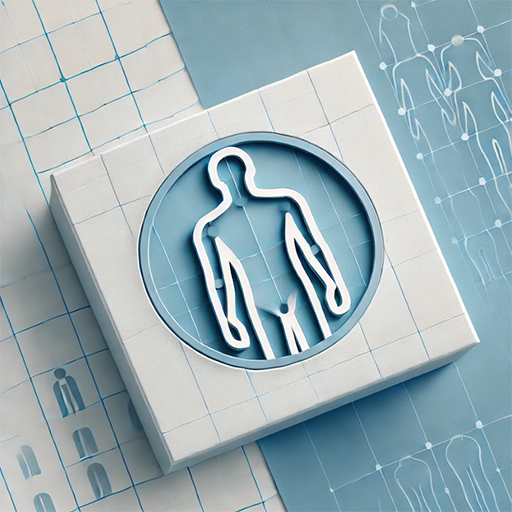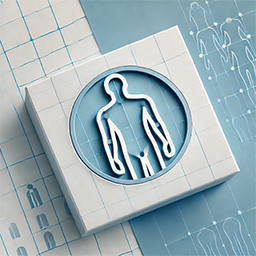Losing weight is often seen as just a physical challenge. But it can also lead to big improvements in your mental health. Many people find that as they lose extra pounds, they begin to feel better both inside and out. Weight loss can lift your mood, increase your confidence, and give you more energy to enjoy each day.
In this blog post, we’ll take a closer look at the strong link between weight loss and mental health. You’ll learn how improving your body can also boost your mind. Plus, we’ll share simple, science-backed tips to help you feel your best both inside and out.
How Weight Affects Mental Health
Your weight can play a big role in how you feel both mentally and emotionally. Studies show that people who are overweight or obese may face a higher risk of mental health struggles. These can include problems such as:
- Depression
Being overweight can increase the risk of depression. Many people feel sad, hopeless, or lose interest in things they once enjoyed. This can be due to low self-esteem, poor body image, or stress linked to weight struggles. - Anxiety
Excess weight can lead to higher levels of anxiety. Some people may feel nervous or worried in social settings, especially about how others see them. This stress can build up over time and affect daily life and mental well-being. - Low self-esteem
Carrying extra weight can sometimes lead to low self-esteem. People may feel bad about how they look or compare themselves to others. These negative thoughts can lower confidence and make it harder to feel good about yourself. - Stress
Being overweight can add extra stress to your daily life. Worrying about health, appearance, or how others might judge you can create constant pressure. This ongoing stress can affect both your mind and body over time.
According to the National Institutes of Health, obesity is connected to a higher risk of mood disorders like depression and anxiety. This doesn’t mean every person who is overweight feels this way, but the link is strong enough to take seriously and explore further.

How Weight Loss Can Improve Mental Health
Losing weight can bring positive changes to both your brain and emotions. Many people say they feel better mentally as the pounds come off. Here are some common mental health benefits people often notice after losing weight:
1. Better Mood
Exercise and healthy eating can trigger your brain to release feel-good chemicals like serotonin and dopamine. These natural chemicals help lift your mood, lower stress, and reduce feelings of sadness. They also play a big role in boosting overall happiness and mental well-being.
2. More Confidence
As your body changes, your self-image can improve too. Many people start to feel more confident, proud, and comfortable in their own skin as they get closer to their weight loss goals. This boost in self-esteem can have a big impact on daily life and mental health.
3. Reduced Stress
Physical activity and losing weight can help lower cortisol, which is known as the stress hormone. With less cortisol in your system, you may find it easier to relax, stay calm, and enjoy daily life more fully.
4. Better Sleep
People who lose weight often notice they sleep better at night. Quality sleep can improve your mood, sharpen your focus, and help your brain work at its best. Better rest also supports overall mental and physical health.

The Role of Healthy Habits
You don’t have to follow a crash diet or spend all day at the gym to see results. In fact, taking small, steady steps often leads to better and longer-lasting changes. Building healthy habits can support both weight loss and mental well-being. These habits include:
Eat a Balanced Diet
- Choose whole foods such as fresh fruits, colorful vegetables, lean proteins, and whole grains. These nutritious options help fuel your body and support both weight loss and good mental health.
- Try to avoid eating too much sugar and processed foods. These can make it harder to lose weight and may affect your mood and energy levels in a negative way.
- Stay hydrated by drinking plenty of water throughout the day. Drinking enough water helps your body work well, supports weight loss, and can improve your mood and energy.
Exercise Regularly
- Aim to get at least 30 minutes of physical activity each day, for at least 5 days a week. This regular exercise can help with weight loss and boost your mental health.
- Walking, swimming, and dancing are all excellent ways to stay active. These fun activities can help you burn calories, improve your mood, and support your weight loss goals.
- Try to find activities you enjoy doing, so it’s easier to keep doing them regularly. When you like what you’re doing, staying active feels fun and less like a chore.
Get Enough Sleep
- Try to get between 7 and 9 hours of sleep each night. Getting enough rest helps your body recover, boosts your mood, and supports your weight loss efforts.
- Try to keep a regular sleep schedule by going to bed and waking up at the same time every day. This helps your body get the rest it needs and can improve your mood and energy levels.
- Avoid using screens like phones, tablets, or TVs before bed. The light from these devices can make it harder to fall asleep and affect the quality of your rest.
Manage Stress
- Practice mindfulness or meditation to help calm your mind and reduce stress. These techniques can improve your mental health and support your weight loss journey.
- Talk to a trusted friend or counselor when you need support. Sharing your feelings can help reduce stress and improve your mental health during your weight loss journey.
- Take regular breaks and make time for activities you enjoy. Doing things you love can help reduce stress and keep you motivated on your weight loss and mental health journey.
What the Research Says
Research shows a strong link between physical health and mental well-being. A study from 2011 found that people who lost just 5% of their body weight felt happier and had fewer signs of depression. Even small changes can make a big difference in how you feel mentally and emotionally.
Also, a review published in the journal Obesity Reviews found that making lifestyle changes—like eating healthier and exercising—can help reduce symptoms of depression in people who are overweight. These positive changes support both the body and mind.
When to Seek Help
Weight loss can be a positive goal, but it’s important to focus on your health, not just your appearance. If you ever feel overwhelmed, sad, or hopeless during your journey, remember that it’s okay to ask for help. Taking care of your mental health is just as important as taking care of your body.
Mental health is just as important as physical health. Working with a doctor, therapist, or registered dietitian can help you create a plan that fits your lifestyle. This plan can support both your body and your mind for better overall well-being.

Tips for a Healthy Mind and Body
Here are some easy tips that can help support your weight loss journey while also boosting your mental health:
- Set goals that are realistic and achievable. Remember to celebrate your small wins along the way, as they help keep you motivated and on track.
- Keep a journal to write down your mood and track your progress. This can help you notice patterns, stay motivated, and understand how your habits affect both your body and mind.
- Try not to compare yourself to others. Everyone’s journey is different, so focus on your own progress and celebrate your unique achievements.
- Be kind to yourself during your weight loss journey. Practice self-compassion and remember that setbacks are normal. Treat yourself with the same care and patience you would offer a friend.
- Focus on how you feel inside, not just the number on the scale. Pay attention to your energy, mood, and overall health as important signs of progress.
Final Thoughts: Your Journey to Health Starts Now
Weight loss is about more than just the numbers on a scale. It’s about feeling better, having more energy, and improving your overall health. The mental health benefits you gain from losing weight are just as important as the physical changes.
By building healthy habits and practicing kindness toward yourself, you can create a better life from the inside out. Taking care of your body and mind helps you feel stronger, happier, and more balanced every day.
Ready to begin your weight loss and mental health journey? Share your thoughts or questions in the comments below. We’d love to hear about the steps you’re taking to improve your health and well-being!



